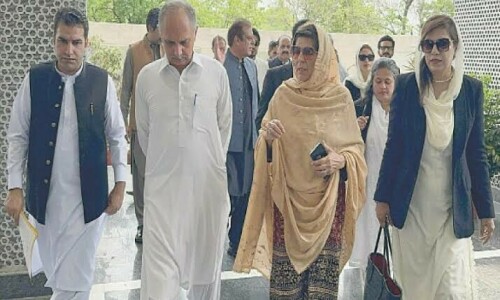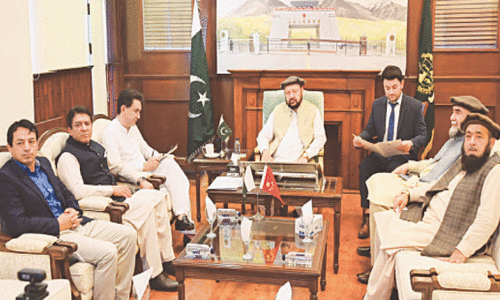ISLAMABAD: It’s safe to say that most people in Pakistan were glad that Malala Yousafzai, then a 15-year-old student, did not die from the bullet wounds a group of Taliban militants left in her face and neck when they ambushed her school bus in Swat in 2012.
It’s probably also safe to say that two years later, most Pakistanis were proud — even if that pride was mingled with other, more complicated emotions — when Ms Yousafzai, an activist for girls’ education, became at 17 the youngest person ever to win a Nobel Prize and her country’s second Nobelist.
Beyond that, the young woman’s story has become so distorted by a bewildering list of honours and accomplishments, and a parallel litany of accusations and suspicions, that it is almost impossible to generalise how she is viewed by her fellow citizens — except that they seem exhausted of hearing about her.
Two weeks ago, Ms Yousafzai announced that she had been accepted to study at Oxford University—her tweet was politely couched in praise for her fellow winning candidates.
“So excited to go to Oxford!! Well done to all A-level students - the hardest year. Best wishes for life ahead!” Malala posted on her Twitter account on Aug 17.
The British press loved the story, but there were few mentions in Pakistan’s media. Reaction from Pakistanis on social media ranged from sincere and congratulatory to snide and envious.
“Well done, Malala,” one man posted on Facebook, praising her humanitarian efforts and success abroad but noting wistfully that many Pakistanis were unable to get ahead except by bribery.
“Time to shoot myself in the head for my next degree,” sneered another person on Twitter, using an expletive to suggest she had done little to deserve it. While some called her a hypocrite and fake, others called her father— a principal by profession— an agent for Israel and the Central Intelligence Agency.
On Tuesday, police officials in Karachi reported that they killed several suspected Taliban and ISIS militants in a raid and shootout, including one who they said was involved in the attack on Ms Yousafzai.
The news made headlines but drew little public interest. News reports seemed sceptical of the police claims. They included scant detail of the long-ago incident and no photos of Ms Yousafzai. The coverage had a perfunctory, “old news” tone.
In a way, it is understandable that this young woman — who appears to have remained a gracious and modest individual despite her global celebrity — has nevertheless become a permanent lightning rod for the muddled grievances, conspiracy theories and thwarted ambitions of a struggling society. A society where many people look to “foreign hands” to blame for their problems and may resent the limelight that comes to some, but only a few, of those who have suffered.
By some estimates, more than 30,000 Pakistanis have been killed in a decade of terrorism and conflict. Ms Yousafzai survived and then went on to become a best-selling author, a winner of numerous international prizes and a United Nations Messenger of Peace.
Now she is going to Oxford to study philosophy and politics.
By arrangement with The Washington Post.
Published in Dawn, September 7th, 2017










































